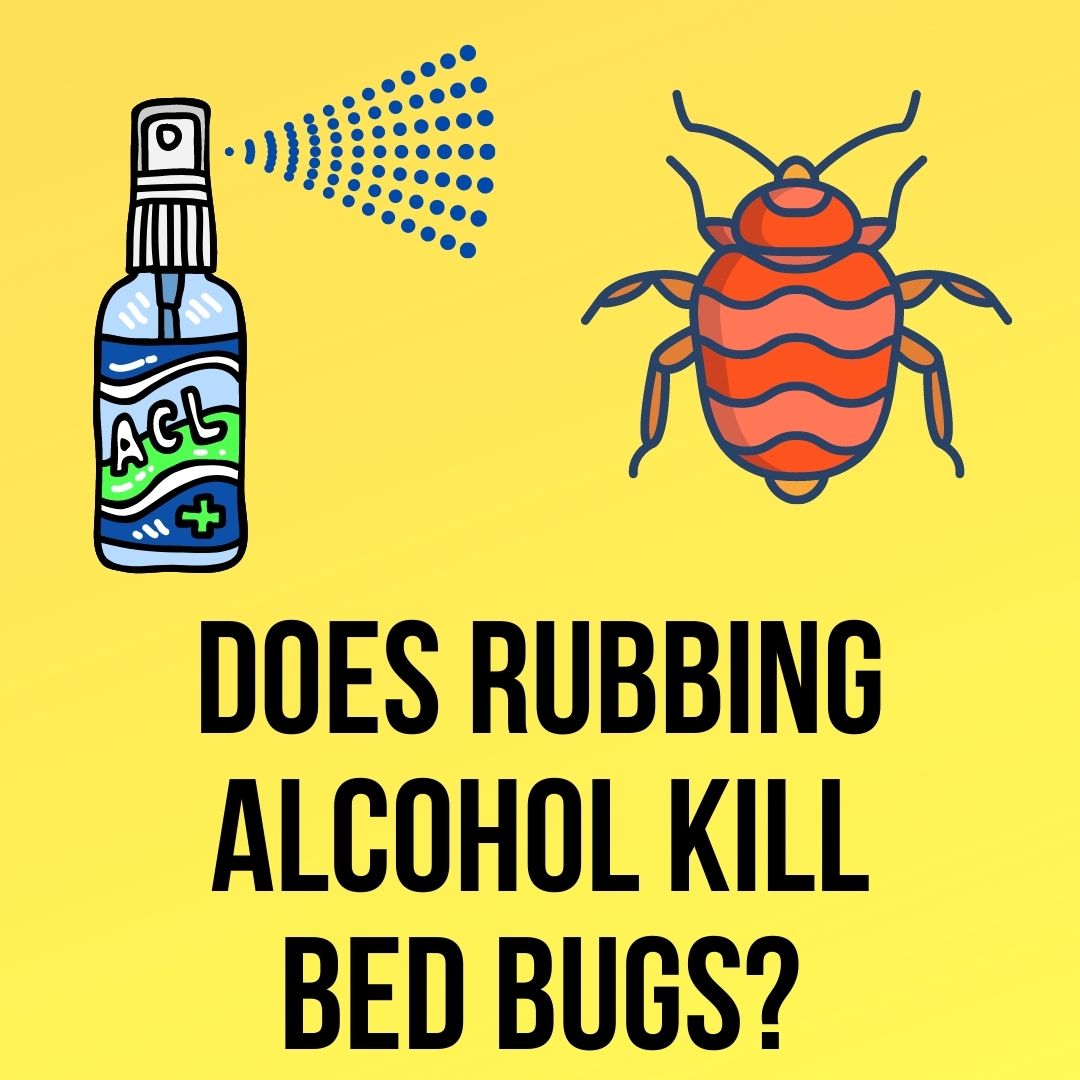
Unveiling the Power of Rubbing Alcohol: Can it Eradicate Bed Bugs?
Bed bugs, the tiny nocturnal pests that feed on human blood, have become a persistent and unwelcome presence in households around the world. While various methods exist for combating these resilient insects, one common household item often touted for its potential bed bug-killing prowess is rubbing alcohol, or isopropyl alcohol. In this article, we will explore the effectiveness of rubbing alcohol against bed bugs, how it works, application methods, and the precautions to consider.
Understanding Bed Bugs:
Bed bugs (Cimex lectularius) are small, reddish-brown insects that feed on the blood of humans and animals. These nocturnal pests hide in cracks, crevices, and other inconspicuous locations during the day and emerge at night to feed. Bed bug infestations can lead to discomfort, itching, and potential allergic reactions in affected individuals.
Does Rubbing Alcohol Kill Bed Bugs?
Yes, rubbing alcohol can effectively kill bed bugs, but its success depends on several factors, and there are important considerations to remember.
- Contact Killing Mechanism: Rubbing alcohol is known for its ability to kill bed bugs upon contact. The alcohol works by breaking down the bugs’ cell membranes, effectively dehydrating and killing them. This contact-killing mechanism makes rubbing alcohol a potential solution for targeting bed bugs on surfaces.
- Instant Knockdown: When bed bugs come into direct contact with rubbing alcohol, it can lead to an instant knockdown. The alcohol penetrates the bugs’ exoskeleton, disrupting their bodily functions and causing rapid mortality. However, it’s essential to note that rubbing alcohol does not provide residual protection, meaning it won’t prevent future infestations.
Using Rubbing Alcohol Against Bed Bugs:
- Direct Application: To use rubbing alcohol against bed bugs, one can create a homemade bed bug spray by mixing rubbing alcohol with water. A common recommendation is to use a solution with a 1:1 ratio of rubbing alcohol to water. This mixture can be sprayed directly onto bed bug-infested areas, including mattresses, bed frames, and other furniture.
- Spot Treatment: Spot treatment involves identifying specific areas where bed bugs are present and applying rubbing alcohol directly to those locations. This targeted approach can be effective in reducing the bed bug population in localized areas.
- Caution with Electronics: While rubbing alcohol can be effective on surfaces, it’s important to exercise caution when using it near electronic devices. Alcohol can damage certain materials and pose a fire hazard, so it is advisable to turn off and unplug electronic items before treating an area.
Precautions and Considerations:
- Flammability and Ventilation: Rubbing alcohol is flammable, and caution should be exercised when using it. Ensure proper ventilation in the treated area, and avoid smoking or using open flames during and immediately after application.
- Surface Compatibility: Test rubbing alcohol on a small, inconspicuous area to check for any adverse reactions, especially on delicate surfaces. Avoid using it on materials that may be damaged by alcohol.
- Limited Residual Effect: Rubbing alcohol provides instant knockdown but lacks a lasting residual effect. Consider combining its use with other bed bug control methods, such as vacuuming, washing linens, and using bed bug mattress covers, for a more comprehensive approach.
- Not a Substitute for Professional Pest Control: While rubbing alcohol can be part of a DIY approach to manage bed bugs, it is not a substitute for professional pest control services. Severe infestations often require the expertise of trained exterminators to ensure effective eradication.
Conclusion:
Rubbing alcohol can be a valuable tool in the battle against bed bugs due to its contact-killing mechanism. When used cautiously and in conjunction with other bed bug control methods, it may contribute to reducing infestation levels. However, users should be mindful of safety precautions, the limitations of rubbing alcohol, and the need for a comprehensive approach to bed bug management. In severe infestations, consulting with professional pest control services is strongly recommended for a more thorough and effective eradication strategy.
(FAQs) about Using Rubbing Alcohol for Bed Bug Control
1. Does rubbing alcohol kill bed bugs instantly? Rubbing alcohol can kill bed bugs on contact by disrupting their cell membranes. However, its effectiveness may vary, and it may not provide instant results in all cases.
2. Is rubbing alcohol safe to use on mattresses and furniture? It is advisable to test a small, inconspicuous area before applying rubbing alcohol to mattresses or furniture, as some materials may be sensitive to alcohol and could be damaged.
3. Can rubbing alcohol eliminate bed bug eggs? Rubbing alcohol is generally less effective against bed bug eggs, as they are more resistant to desiccation. Other methods, such as heat treatments, may be more suitable for targeting eggs.
4. How should rubbing alcohol be applied to treat bed bugs? A diluted solution is often recommended, with a common mixture of one part rubbing alcohol to one part water. This solution can be applied using a spray bottle, targeting areas where bed bugs are present.
5. Is rubbing alcohol a long-term solution for bed bug infestations? Rubbing alcohol provides a temporary solution and lacks a lasting residual effect. For comprehensive and long-term control, an Integrated Pest Management (IPM) approach involving various methods may be necessary.
6. Are there safety precautions to consider when using rubbing alcohol for bed bugs? Yes, rubbing alcohol is highly flammable. Users should avoid open flames or sparks during application. Adequate ventilation is essential to minimize inhalation risks.
7. Can rubbing alcohol be used as a standalone method for bed bug control? While rubbing alcohol can be part of a DIY approach, severe infestations often require professional pest control services. Professionals have access to more potent insecticides and expertise in dealing with bed bug problems.
8. What are the limitations of using rubbing alcohol against bed bugs? Rubbing alcohol has limited residual effects, meaning it only kills bed bugs on contact. It may not reach hidden bugs or eggs, necessitating a comprehensive approach for effective control.
9. Can rubbing alcohol be harmful to humans or pets during bed bug treatments? Proper ventilation is crucial during rubbing alcohol application to minimize inhalation risks. Pets and humans should be kept away from treated areas until the alcohol has evaporated.
10. Are there alternative methods for controlling bed bugs? Yes, Integrated Pest Management (IPM) strategies may include methods such as thorough cleaning, vacuuming, steam treatments, and the use of insecticides specifically formulated for bed bug control. Consulting with pest control professionals is advisable for severe infestations.

My name is Logan, and I’m a 36-year-old dad who owns a small pressure-washing company in the suburbs of Atlanta, Georgia. My main goal with rubbing-alcohol.com is to show you how versatile isopropyl rubbing alcohol can be! I hope. You find it useful.
